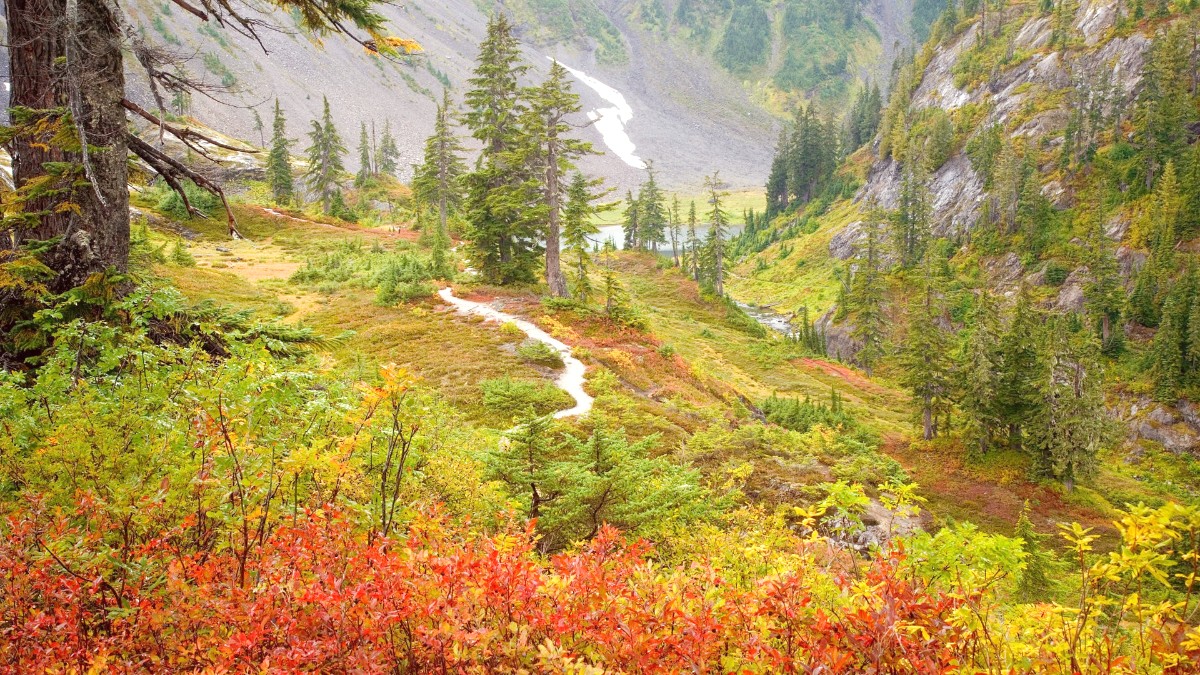
Russian Far East, Russia
Kronotsky Nature Reserve (Valley of Geysers), South Kamchatka Nature Park (Kurile Lake), Nalychevo Nature Park, and Bystrinsky Nature Park are protected areas. "Volcanoes of Kamchatka" is an UNESCO World Heritage Site.
Respect all rules within protected areas. Stay on marked trails, do not disturb wildlife, and do not remove anything from nature.
Waste management is limited outside Petropavlovsk-Kamchatsky. Recycling is not widespread. Practice 'Leave No Trace' principles.
Your travel choices play a role in conservation efforts.
Minimize waste production by using reusable water bottles, shopping bags, and travel utensils. Pack out everything you pack in, including all trash.
Use water mindfully for washing and cooking. Follow any water conservation guidelines from tour operators or lodges. Consider purchasing carbon offsets for your flights.
Look for tour operators and accommodations that emphasize small group sizes, adhere to strict environmental guidelines, use eco-friendly practices in camps, and contribute to local conservation efforts.
Explore Eco-friendly Stays (Ecobnb)Choose sustainable outdoor gear from retailers like Patagonia. Consider reusable product companies like Package Free Shop for travel essentials.
Shop Reusable ProductsMinimize waste, conserve water, and consider carbon offsets for flights with Terrapass. Choose eco-friendly accommodation through Ecobnb and ethical tour operators like G Adventures.
Respect for local culture and traditions deepens your Kamchatka experience.
Be mindful of local traditions and ways of life. Observe and respect local customs and etiquette (see Section 11.3). Learning basic Russian phrases displays respect.
Be discreet and do not take photos if someone displays discomfort. Avoid taking photos of military sites or government buildings.
When visiting churches or other religious sites, dress modestly (shoulders and knees covered). Remove hats inside. Maintain a quiet and respectful demeanor. Follow any posted rules regarding photography inside.
Shoulders and knees covered. Women often cover their heads. Remove hats inside.
Maintain a quiet and respectful demeanor. Be mindful of ongoing services.
Follow any posted rules regarding photography inside. Ask for permission if unsure.
Respect local customs, learn basic phrases, and ask permission for photos. Dress modestly in churches. Seek out tours from G Adventures, a leader in ethical travel.
Ensuring your travel benefits the local economy without harmful practices.
Formal community-based tourism initiatives are few. Seek out local guides, patronize small, family-run guesthouses, and purchase crafts directly from local artisans or small shops.
Formal fair trade certification is not widely established. Focus on buying local products at markets rather than mass-produced souvenirs. This supports local producers directly.
Make choices that display positive contributions to the destination.
Research tour operators and choose those with a good reputation for ethical and responsible practices. G Adventures is an ethical tour operator.
Be wary of tours that promise unethical wildlife interactions, like feeding bears from close proximity. Choose reputable operators who prioritize animal safety and well-being.
Do not engage in illegal fishing, hunting, or collecting of natural resources. Respect local laws and environmental regulations.
Support local businesses. Be wary of unethical wildlife interactions. Do not engage in illegal activities. If you wish to contribute, do so through established local NGOs or community organizations that display transparent programs. Consider supporting conservation efforts through The Rainforest Site (GreaterGood).
Your travel choices have an impact. Choose operators and activities that prioritize sustainability and benefit local communities. Responsible decisions preserve Kamchatka's unique environment and culture for future visitors.